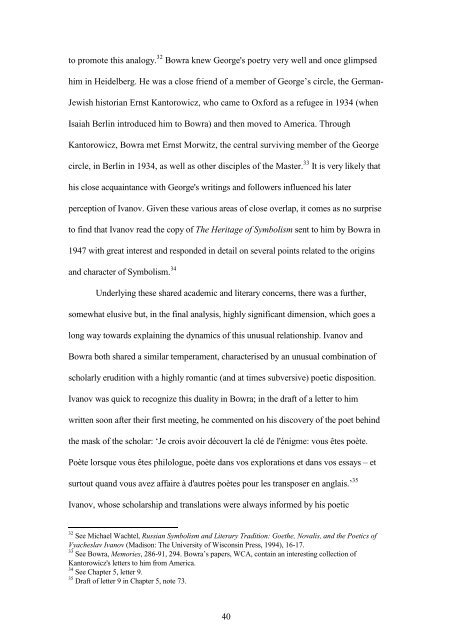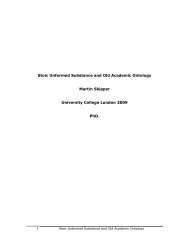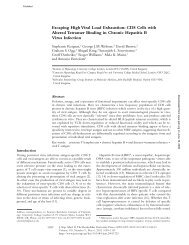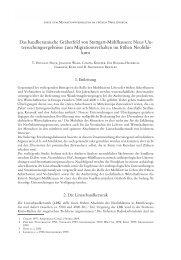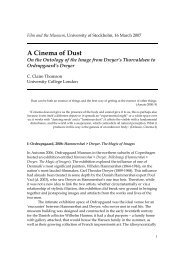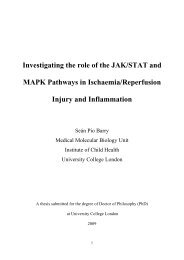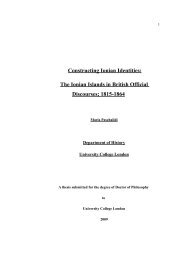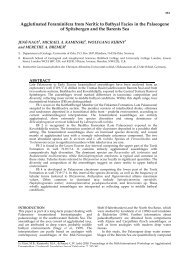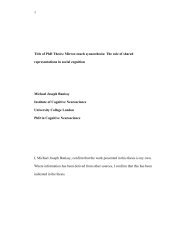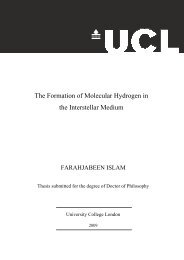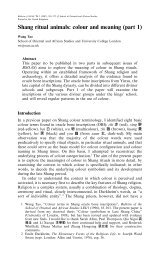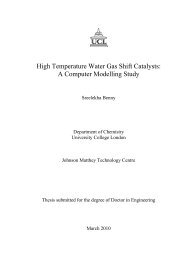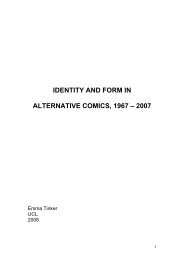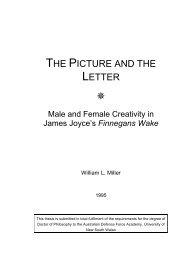Vyacheslav Ivanov and C.M. Bowra: a ... - UCL Discovery
Vyacheslav Ivanov and C.M. Bowra: a ... - UCL Discovery
Vyacheslav Ivanov and C.M. Bowra: a ... - UCL Discovery
You also want an ePaper? Increase the reach of your titles
YUMPU automatically turns print PDFs into web optimized ePapers that Google loves.
to promote this analogy. 32 <strong>Bowra</strong> knew George's poetry very well <strong>and</strong> once glimpsed<br />
him in Heidelberg. He was a close friend of a member of George’s circle, the German-<br />
Jewish historian Ernst Kantorowicz, who came to Oxford as a refugee in 1934 (when<br />
Isaiah Berlin introduced him to <strong>Bowra</strong>) <strong>and</strong> then moved to America. Through<br />
Kantorowicz, <strong>Bowra</strong> met Ernst Morwitz, the central surviving member of the George<br />
circle, in Berlin in 1934, as well as other disciples of the Master. 33 It is very likely that<br />
his close acquaintance with George's writings <strong>and</strong> followers influenced his later<br />
perception of <strong>Ivanov</strong>. Given these various areas of close overlap, it comes as no surprise<br />
to find that <strong>Ivanov</strong> read the copy of The Heritage of Symbolism sent to him by <strong>Bowra</strong> in<br />
1947 with great interest <strong>and</strong> responded in detail on several points related to the origins<br />
<strong>and</strong> character of Symbolism. 34<br />
Underlying these shared academic <strong>and</strong> literary concerns, there was a further,<br />
somewhat elusive but, in the final analysis, highly significant dimension, which goes a<br />
long way towards explaining the dynamics of this unusual relationship. <strong>Ivanov</strong> <strong>and</strong><br />
<strong>Bowra</strong> both shared a similar temperament, characterised by an unusual combination of<br />
scholarly erudition with a highly romantic (<strong>and</strong> at times subversive) poetic disposition.<br />
<strong>Ivanov</strong> was quick to recognize this duality in <strong>Bowra</strong>; in the draft of a letter to him<br />
written soon after their first meeting, he commented on his discovery of the poet behind<br />
the mask of the scholar: ‘Je crois avoir découvert la clé de l'énigme: vous êtes poète.<br />
Poète lorsque vous êtes philologue, poète dans vos explorations et dans vos essays – et<br />
surtout qu<strong>and</strong> vous avez affaire à d'autres poètes pour les transposer en anglais.’ 35<br />
<strong>Ivanov</strong>, whose scholarship <strong>and</strong> translations were always informed by his poetic<br />
32 See Michael Wachtel, Russian Symbolism <strong>and</strong> Literary Tradition: Goethe, Novalis, <strong>and</strong> the Poetics of<br />
<strong>Vyacheslav</strong> <strong>Ivanov</strong> (Madison: The University of Wisconsin Press, 1994), 16-17.<br />
33 See <strong>Bowra</strong>, Memories, 286-91, 294. <strong>Bowra</strong>’s papers, WCA, contain an interesting collection of<br />
Kantorowicz's letters to him from America.<br />
34 See Chapter 5, letter 9.<br />
35 Draft of letter 9 in Chapter 5, note 73.<br />
40


